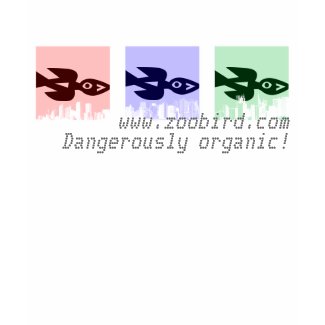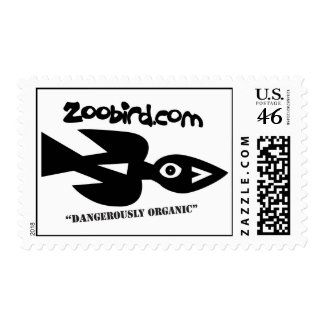Dangerously organic!
(photo by Michael Levin)
Mother Nature has saddled Florida's freshwater turtles with an unfortunate trait - deliciousness. For as long as humans have lived in Florida they've dined on turtles. The archaeological record, including those culinary treasure troves we call middens, are loaded with evidence, as are more recent historical records. When William Bartram remarked, in the 1770's, that turtles are "food for mankind and esteemed delicious," he wasn't just speaking on behalf of the Seminoles with whom he was visiting (and dining), but for every culture that has lived in Florida for the past twelve thousand years.
When African slaves were brought to this country, they learned to supplement their diet with wild game, including an animal they knew from their homeland - the "kuta" or freshwater turtle. While the language of these proud people was tragically lost within a few generations (in this country) , this one word survived. Today, "cooter" is the common name for several of our freshwater species.
Even though humans seem designed to eat meat, we feel compelled to justify eating fellow species - deer are over populated; hogs destroy the forest; racoons are pests; alligators are man-eaters, goats are....just asking for it. In the case of turtles, such salves to our consience don't exist. What have turtles ever done to us? Well, I guess there was that one unfortunate incident, in 456 BC, when a turtle killed the Greek playwright, Aeschylus. Even then, I think blame clearly goes to the eagle that dropped the turtle on the writer's bald noggin, mistaking it for a rock on which he hoped to crack the turtle open. (Did I mention that Aeschylus is considered the "Father of Tragedy?")
Aside from our predator/prey relationship, turtles have played other roles in cultures around the world. In India, an ancient cosmological tale says that the earth rests on the back of a huge elephant, and he, in turn is teetering on the back of a turtle. In China, soothsayers interpreted the markings on turtles backs to tell the future. More recently, in Japan, it was customary to give a turtle as a wedding gift. The turtles legendary longevity was symbolic of long life for the couple.
When it comes right down to it, most of us are quite fond of turtles. They are reliable and welcome fixtures on rivers like Ichetucknee and Santa Fe, where savy parents know to instruct their child to keep count. It's a great ploy (trick?) that not only enhances the childs positive memories of the experience, but also keeps them from being tossed out of the boat for whining about being bored (I'm available for baby-sitting). Really attentive kids can sometimes count nearly 100 turtles per hour on our turtle-rich waters.
In the 1960's & '70's, fondness for freshwater turtles came full circle with a surge in their popularity as pets. Hatchling turtles - mostly red-eared sliders - were the Cabbage Patch Kids of their day and nobody striving for the American dream could expect to get there without at least one pet turtle - in a very small aquarium. This fad came to a screeching halt. however, when it was discovered that some of the young turtles carried Salmonella bacteria. As a result, it is now illegal to sell any turtle under four inches long.
In recent years, our turtles have enjoyed a bit of a reprieve from the whims of human fashion and appetite. Harvesting pressures on freshwater turtles for food has mostly been limited to old time cracker families who occassionally eat cooter. There is also a small cottage industry - mostly young boys eager to make a few bucks - of selling turtles to specialty restaurants. Additional threats to their survival are pollution, loss of habitat, road-kill, and predation of nest raiders - especially racoons.
Today there is a new threat to our turtles that is unlike any in Florida's history. This time, the threat comes from China, where high demand for turtle meat coupled with the near extermination of their own local species, has forced suppliers to tap into markets in other countries. Most places have regulations that prohibit this trade - Florida isn't one of them. Until September, the harvesting and sales of Florida turtles was unlimited. In an emergency action, Gov. Crist stepped in and enacted a temporary ruling limiting the "take" to 20 turtles per person per day. It's a rediculously high number. With this limit, a few turtle catchers could set camp on Santa Fe River and legally wipe out that waterways' entire population within a year.
The FWC is currently working to implement a plan to protect our turtle species. Hopefully, it will be more realistic than the temporary 20/person/day bag limits. If you feel inclined to add your voice to the call to protect our freshwater turtles, here are some contact numbers. Let them know you want to ban the harvesting of our freshwater turtles.
Governor Crist: Tel*: (***850) 488-7146; Fax: **(850) 487-0801; Email: Charlie.Crist@MyFlorida.com
FWC: Tel: (850) 488-3831; Fax: (850) 488-1961; Email: Bill.Turner@MyFWC.com
In the meantime, our turtles will have to rely on other traits bestowed on them by the Big Girl (Mother Nature) - their healthy fear of humans; fast swimming abilities (they can outswim a snorkeler in fins when suffiently motivated); and clever egg-laying strategies which includes digging decoy nests. So, while our society wrestles with it's moral conscious--described Archie Carr as the "Jeckyll-and-Hyde compulsion both to learn about the natural history of animals and to eat them."--I think I'll head for the river where I can enjoy them at their best - perched on a log, sunny side up!
Comment
-
Comment by Nguyen Thi Trung on November 16, 2010 at 1:54am
-
I enjoy your knowledge and wit. I am also interested in doing some paddling about the middle of next month (december 2010), will you be available as guide? Thanks! Trung nttrung15@hotmail.com
-
Comment by Ellen Bush on December 15, 2008 at 6:41pm
-
Hi Lars, Good article and I agree I'd certianly rather see them perched on a log or safely elsewhere. Ellen
© 2026 Created by Michael Levin.
Powered by
![]()






You need to be a member of Zoobird to add comments!
Join Zoobird